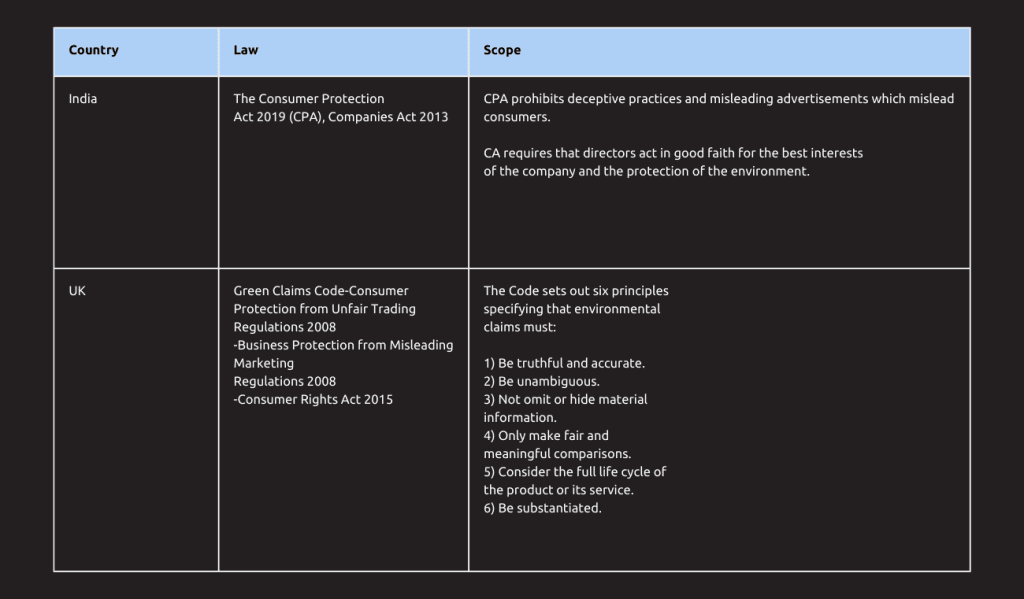Green-washing and Green-hushing in the Sustainability Journey
Read the Magazine in PDF
Introduction
Globally, there is a growing need for a sustainable transition of cities, business operations and individuals to address climate change and achieve social, economic, and environmental well-being. To accelerate this transition, international organisations such as agencies of the UnitedNations, NGOs, educational institutions, consulting firms, and other stakeholders are working towards building and operationalizing international standards, frameworks, disclosure guidelines, and other resources on sustainability topics, which casually led to the emergence of new green terms such as ‘Greenwashing’ and ‘Green-hushing’. This article is about understanding these terms, how they affect a company and its consumers, and the best practices that can help address greenwashing and green-hushing.
What are Greenwashing and Green-hushing?
Although there is no globally accepted definition for these terms, in this article, greenwashing and green-hushing are referred to as:
Greenwashing is when an organisation intentionally communicates false or misleading green claims. As a result, it receives an accusation of greenwashing, negatively affecting its legitimacy and damaging its reputation.
Green-hushing is when an organisation intentionally under-communicates its sustainability practices for fear of getting criticised, which causes a bad reputation. It can also happen when companies are unaware of how to communicate their green claims.
Since consumer choices are more inclined towards products and services that claim to be environmentally friendly, companies indulge in greenwashing. For instance, the European Commission and national consumer authorities conduct ‘sweeps’, basically an exercise to identify breaches in EU consumer law in online markets. For the sweeps conducted on greenwashing, it was observed that in 42% of the overall cases, companies; environmental or green claims were either exaggerated, false, or deceptive because they could not provide substantial evidence to support their green claims.
According to a net zero report published by the South Pole, a sustainability consulting firm, among 1200 organisations surveyed in 2022, approximately 300 companies did not publicise their sustainability claims, indicating a trend by which one in four companies is exercising green hushing.
Impacts of Green-washing
- Greenwashing can lead to reputational damage to an organisation.
- It can result in a loss of consumer trust.
- Can incur financial and non-financial risks.
- Companies may face legal consequences for greenwashing.
- It indicates that a company needs to conduct green claim audits to verify its claims.
- Greenwashing misleads consumers and the value chain suppliers.
- Concealing significant environmental aspects and impacts in its claims can, in turn, intensify those impacts.
- Greenwashing can also implicitly damage the reputation of rival companies due to inconsistent comparisons by the reporting organisations.
- It can damage employee morale.
Impacts of Green-hushing
- Restricts the exchange of technical know-how in achieving climate targets.
- It can slow down the progress towards achieving sustainability goals.
- Targets and achievements may get harder to scrutinize.
- Hinders innovation that can accelerate the
- Sustainable transition.
- Since ESG reporting is mandatory in some countries, not communicating green claims
- This can put the organisation at risk of losing business from its suppliers in the value chain.
- Green-hushing organisations may risk losing consumers for being less transparent.
How are the countries preventing Greenwashing and Greenhushing?
According to the Penningtons Manches Cooper article on ‘Greenwashing and the rise of Green-hushing’, 5 Some countries such as the US, UK and Australia introduced greenwashing laws to control and prevent misleading green claims. In contrast, many other countries address this issue through consumer protection laws, as presented in the tables below.




What Can the Consumers Do to Spot Greenwashing?
- Check if the organisation’s claims are supported by adequate information.
- Look for evidence supporting the green claim (for example, environmental certifications, labels, sustainability reports, etc.)
- Refrain from getting deceived by the marketing strategies, which may sometime use green terms, pictures, videos, logos, etc., to project that the organisation is environmentally conscious. Look for the organisation, environmental commitments and action plans to achieve them.
- Check if the product you buy has proper disposal information provided to spot companies that care about the product and environmental life cycle impacts.
What Can Companies Do to Prevent Greenwashing?
- Be truthful and accurate about the green claims they make.
- Ensure the organization and green claims matches its environmental credentials such as certifications, labels, etc.
- Mention the material aspects of providing the product and service and inform people how the organization prioritises and addresses environmental challenges across its value chain.
- Make fair and meaningful comparisons.
- Follow the national or regional regulations to avoid greenwashing and green hushing.
- Consider the lifecycle environmental impacts of the products or service while making green claims.
- Substantiate the green claims with proper evidence specified in international standards or national regulations.
Greenwashing and Green-hushing in Healthcare
Greenwashing and Green-hushing is a cross-sector phenomenon, with no industry immune to it. As sustainability gains further traction and importance in healthcare, the spectre of greenwashing and green-hushing too is likely to appear. It is, therefore, essential that patients base their choices on the sustainability practices of their providers. They should seek more information on the courses being spoken about by their provider.
For providers, in the interest of their stakeholders, adequate, timely, consistent disclosures on sustainability practices will become important in the times ahead. In a sector that critically focuses on evidence-based practice, its sustainability practices and disclosures should also meet those high and exacting standards.
Conclusion
This article shows that companies can prevent greenwashing and green hushing if they comply
with relevant national laws and adopt international standards, methodologies, frameworks, and codes of conduct. Verifying and validating green claims by experts following these laws and standards can be a great way to substantiate the claims. On the other hand, collecting inputs from the stakeholders along the value chain can help identify the environmental needs and expectations and initiate projects that can help address organization-specific ecological challenges. These actions build clarity and confidence in developing and communicating company-specific green claims for socio-economic well-being.




